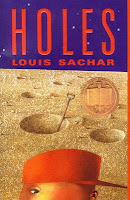Check out my top ten list to see which book features a character similar to this eye-candy shot of Ben Barnes in Victorian gear... that I'd happily travel back in time for!
There's no better way for this book lover to close out 2011 with a list of her favorite books read this year. 62 books is a new record for me and a big pool to choose from.
Here's my top ten list, and there's another more creative list after that!
10. Wildwood Dancing, Juliet Marillier (YA historical fantasy)
Not just a fairytale retelling, this is fairytale fusion set in
historical Transylvania. Rich with tension between two worlds and a double love
story.
9. Changeless, Gail Carriger (Steampunk)
A worthy sequel to
Soulless, with an indomitable Victorian heroine and more delightfully
wicked repartee between Alexia and Lord Maccon. I found the picture of Ben Barnes as Lord Maccon, your not so typical Scottish werewolf gentleman, on a Pinterest wall devoted to this series. I will definitely be reading the rest of the books. The series is Soulless, Changeless, Blameless, Heartless and Timeless (comes out in 2012).
8. Wings / Spells / Illusions, Aprilynne Pike (YA paranormal)
I
usually only read one series book a year, even when they are available.
This one was a rule-breaker. It's a love triangle, human/human/faery (with a pretty weird/awesome twist on faeries)
and I am sooooo Team Tamani. Anxious for next and final book.
7. Iron King, Iron Daughter, Iron Queen, Iron Knight - by Julie Kagawa
Okay, I lied. This is another rule-breaker series, and another one, strangely enough, about faeries. But in this case it's the world-building that won me over with the stark contrast between the steampunkish iron fey and the sinister beauty of the summer/winter fey.
6. Unearthly, Cynthia Hand (YA paranormal)
Very memorable characters that keep you guessing, based on an angel mythology with a realistic feel, and set in Jackson Hole, Wyoming (wow). Will definitely read sequels.
5. Beauty, Robin McKinley (YA fantasy)
A retelling of Beauty and the Beast, written in the 70's, but an enduring classic. Disney, you sure stole a lot of Robin's great ideas for your movie! But the romance is even more wonderful in the book, and there are a lot more magical details.
4. A Northern Light, Jennifer CDonnelly (YA historical)
A
sophisticated and gripping emotional arc set alongside a murder
mystery. Superbly layered subplots. A fantastic array of characters, and it left me with a new appreciation for dictionaries and "word wars."
The last three are a tie, I really can't pick which was my favorite - and all three of them go on my all time favorites list. The really interesting thing is that my top three aren't YA (which is my usual favorite, if you couldn't tell from the list above). Another bizarre fact: I absolutely LOVE love stories but my top three weren't love stories. I surprise myself.
1, 2 or 3: The Help, Kathryn Stockett (Literary)
Two black maids from the 1960s, Aibileen and Minnie, and the white girl,
Skeeter who wants to tell their stories. Oh, the stories!
1, 2 or 3: Holes, Louis Sachar (MG)
The most unusual, scary, and
satisfying summer camp-for-kids story ever. The way everything comes
together at the end makes you want to stand up and cheer.
1, 2 or 3: Pegasus, Robin McKinley (MG fantasy)
A
best friend with wings, amazing world-building, clash between cultures.
Slow pace, but I savored every moment because it's loaded with
interesting details, insight and lots of heart. Desperate for the
sequel! (I gushed out almost 2000 words in my Goodreads review of this book!)
Here's my second list, (the idea shamelessly stolen from Sophia Richardson's list) which gives me the opportunity to list some great runner-ups.
Most Envy-Inducing Plot: Starcrossed, Josephine Angelini (YA paranormal)
Deliciously unrequited love and beautiful superpowers with a great modern twist on ancient Greek myths and a humorous twist on the kryptonite idea. Will read sequel. And I LOOOVVVVVVEEEEEEE this cover!
Most Wonderful World-Building: Leviathan, Scott Westerfeld (YA steampunk)
Two kids on different sides of a alternative history steampunk war have to rely on
each other to survive. Plus a bunch of amazingly creative creatures and
machines.Will read sequels.
Scariest World: Divergent, Veronica Roth (YA dystopian)
Do you have to be violent to prove your bravery? Tris discovers that ordinary acts of bravery are the greatest
of all in this riveting futuristic
tale with lots of hair-raising jumping off buildings and trains.
Loveliest Prose: Lady in Waiting, Susan Meissner (Christian)
There are actually two ladies in waiting: present day Jane, waiting for her husband to return, and Lady Jane Grey, who sat on the throne of England in the 1500's for all
of nine days before being de-throned. The parallel stories are beautifully framed with symbols and prose and plenty of page-turning tension.
Best First Line: Daddy said, “Let mom go first.”
Across the Universe, Beth Revis (YA SF)
Exquisitely plotted book with an eerie trapped-in-a-space ship setting.
Most Dynamic Main Character(s): From the Mixed Up Files of Mrs. Basil E Frankweiler, by E.L. Konigsburg (MG)
It's classic, it's funny, it's set in the after hours of the
Metropolitan Museum of Art in NYC. Claudia and James are clever but vulnerable, a great brother/sister love/hate pair.
Best new paranormal creature: Shifting, Bethany Wiggins (YA paranormal)
Navajo skinwalkers. Maggie can shift into a cheetah - how cool is that? And other things as well - you gotta see what happens when she tries to shift into a mythical creature!
Most enticing time to travel back to: To Ride the God's Own Stallion, Diane Lee Wilson (MG)
Set in ancient Assyria - Oh my gosh the lion hunts! - destined to become a classic horse story for kids.
Most Jaw-Dropping Finale: Falling Under, Gwen Hayes (YA paranormal)
End with an unexpected twist that make you go, "No way!!! How is that going to work????" but yet it DOES work. So very well. This book also rates HIGH for great non-cliche characters and heart-pounding romantic tension.
Most Heartbreaking Scene: I Am Number Four, Pitticus Lore (YA SF/paranormal)
A teenage
Superman, his mentor, and alien conspiracies. One of the best scenes I
have EVER read. The protagonist is recalling violent memories of his people being destroyed, juxtaposed with his mentor/protector describing his wife and the
reasons why he loved her so much. Powerful.
Most anticipated 2012 release: The Archived, Victoria Schwab. Oh wait, I have to wait until 2013???
A teenage girl must
return the restless, ghost-like Histories of the dead to their rightful
place in a labyrinthine supernatural library known as the Archive. When
more Histories begin to wake and escape, she must stop the doors
between the worlds of the living and dead from breaking open, all
without falling victim to a beguiling History who is more human – and
more disarmingly attractive – than the others.
What were your favorite reads of 2011?
Winter Wishes Giveaway Hop
-
Happy Friday Everyone! Today I'm excited to participate in the Winter
Wishes Giveaway Hop hosted by *MamatheFox *and MomDoesReviews. I hope
you're having...
1 hour ago







































